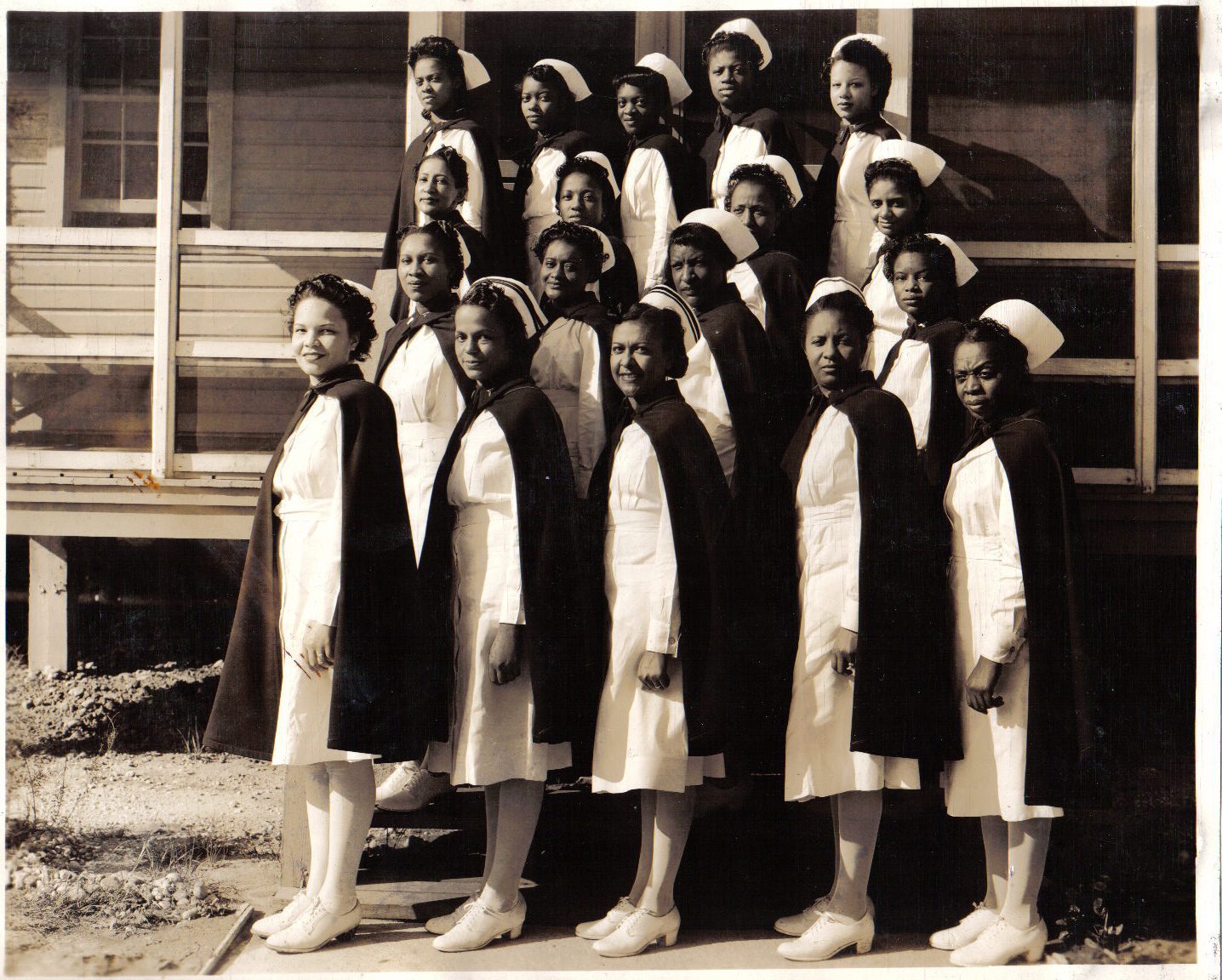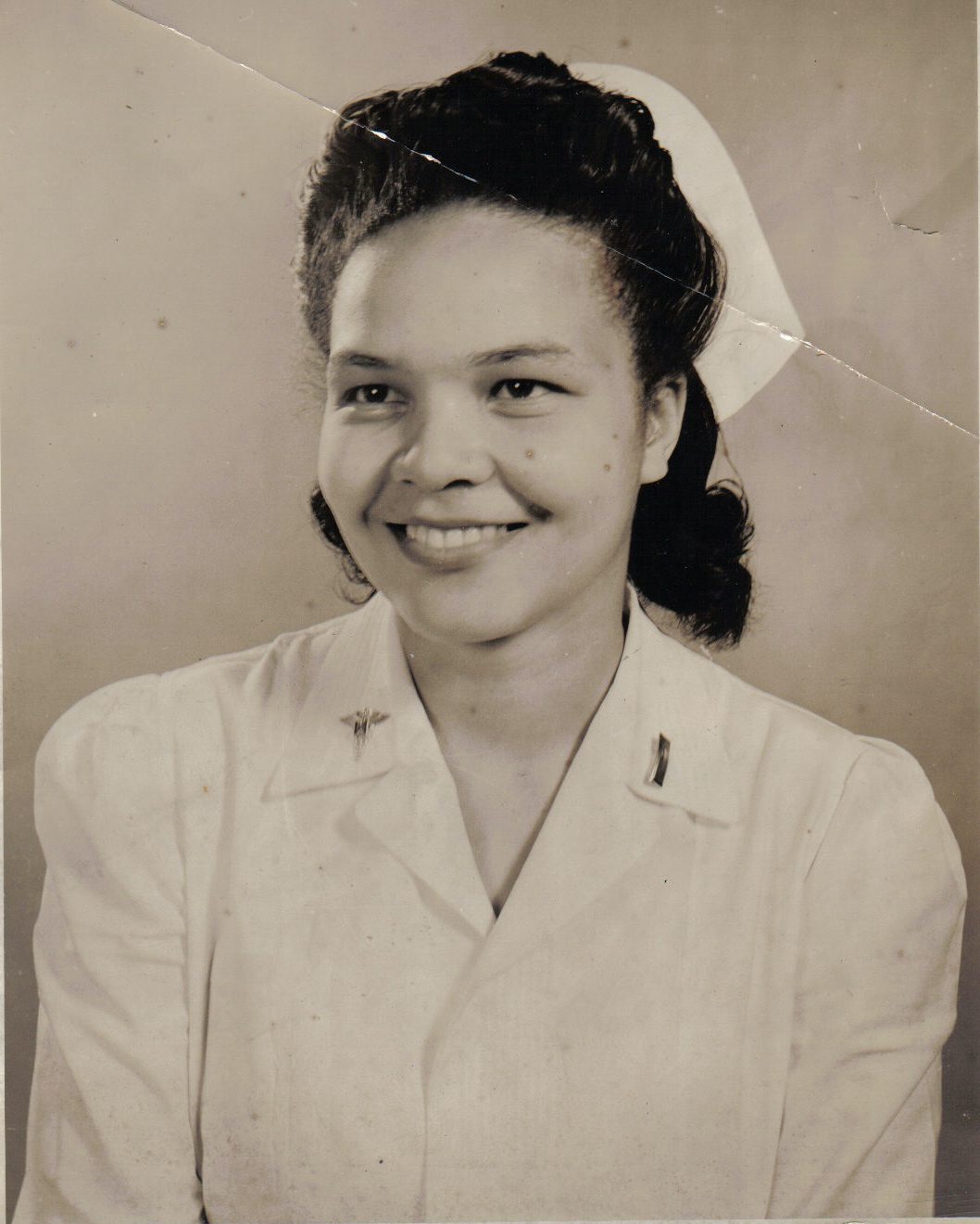New book commemorates history-making St. Philip alum

In 1942, Louise Lomax Winters graduated from the St. Philip School of Nursing, a segregated school for Black women founded by the Medical College of Virginia in 1920. After graduating, Winters and three other St. Philip alumnae joined 24 women as nurse-lieutenants at the Tuskegee Army Air Field in Alabama, another segregated facility where the Tuskegee Airmen trained. Like the airmen — the first Black military aviators in the U.S. armed forces — the nurses broke color barriers.
More than six decades later, Winters’ daughter, Pia Marie Winters Jordan, launched a multimedia project about her mother and the Tuskegee nurses. Jordan’s book, “Memories of a Tuskegee Army Nurse and Her Military Sisters,” comes out in June. We sat down to talk to Jordan about her research and what she learned about her mother’s experiences.
Join VCU Alumni for a virtual talk with author Pia Jordan.
6 p.m. Wednesday, Feb. 22.
Register now.
When did you learn your mother was a Tuskegee nurse?

I vaguely remember my mother showing me a scrapbook when I was a teenager. At the time, I thought, “You were in the military. That’s nice.”
Then, in 2006, my mother became ill. While I was cleaning out her apartment, I came across that scrapbook. I told one of my colleagues, “I’m sorry I didn’t do something with this while my mother was better.” She said, “Why not start now?”
How did the project unfold?
My initial idea was to do a video documentary, website and display for the 2011 Tuskegee Airmen annual convention. I started interviewing the nurses and airmen who were still living.
I went to California to interview one of my mother’s friends, and, while there, I found some airmen and asked them about the nurses. One of them laughed when I showed him my mother’s picture; he said she was his nurse when he had the mumps.
I tracked down as many nurses and airmen as I could and began compiling what I had learned for the website, and eventually, the book.
What did you learn about your mother’s experience at St. Philip?
When I went with my mom to reunions for St. Philip, the nurses would talk about how they got such a great education and were so proud of themselves.
In September 2012, the VCU School of Nursing invited me to be the keynote speaker for the “Jackie Denise Jackson Memorial Cultural Diversity Lectureship.” One of the white doctors who had worked at St. Philip Hospital was there, and he was almost in tears. He said when he was a young doctor, the St. Philip Hospital’s nurses helped get him through his first few years as a physician.
Do you think your mother realized the historical significance of being a Tuskegee nurse?
She never said, “I was a part of history.” I don’t think any of them thought, “Oh, hey, we’re breaking the color code for nurses in the military.” These women just wanted to be part of something new and exciting.
But they helped with integration. If they had not done their jobs well, people would have said, “Well, see, the experiment didn’t work. They’re not able to do this.” But these nurses were good at their jobs. They were officers, and the airmen that were training were cadets; the airmen in training saluted the nurses.
Though my mother didn’t talk much about Tuskegee, I knew her story needed to be shared. I wanted this project to be my mother’s legacy.
The Louise Lomax Winters Scholarship Fund in the VCU School of Nursing was established in 2011. Learn more about Winters and the other Tuskegee Army nurses.
Categories Alumni